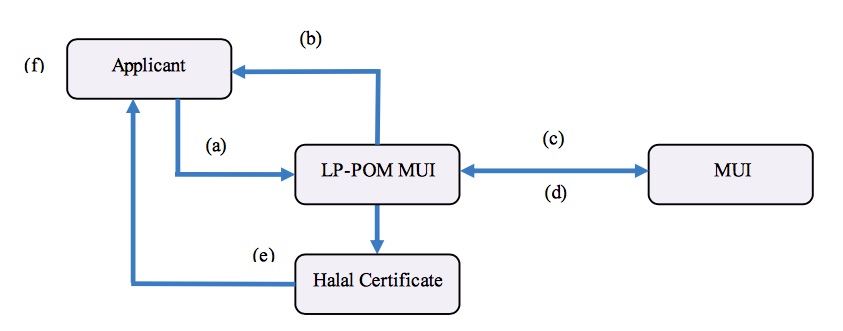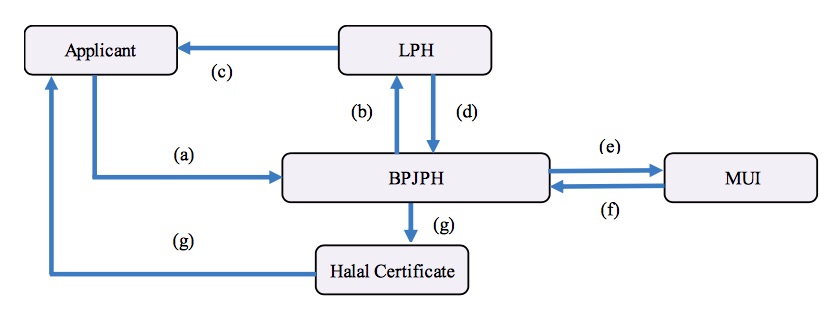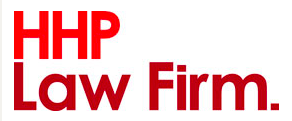21 November, 2017
Introduction
In 2014 the Indonesian government issued Law No. 33 of 2014 on Halal Product Assurance (“Halal Law”). The Halal Law requires all “products” that are imported, distributed and traded within the Indonesian territory to be halal certified (“Halal Certification Requirement”). The Halal Certification Requirement will only come into effect 5 years after the Halal Law is enacted (ie, 17 October 2019). Prior to that date, halal certification will be complied with by business actors on a ‘voluntary’ basis.
The Halal Law also requires a Halal Product Assurance Implementing Board (Badan Penyelenggara Jaminan Produk Halal or “BPJPH”), which is under the Ministry of Religious Affairs, to be established within three years after 17 October 2014 (ie, 17 October 2017). BPJPH has been officially established under the supervision of the Ministry of Religious Affairs ("MORA"). However, since the Halal Law is not effective yet, the Indonesian Ulema Council (Majelis Ulama Indonesia or “MUI”) still holds the authority to handle halal certification in Indonesia.
Many questions were raised by business actors on the implementation of this law. No implementing regulation has been issued until now. We hope that the implementing regulations would bring more clarity as to exactly how the Halal Certification Requirement and the other related provisions under the Halal Law will be implemented in practice. We set out below our update on the current situation of the Halal Certification Requirement in Indonesia based on the latest developments. But please note that the below update is still subject to the implementing regulation.
Scope of the Halal Law
One of the major outstanding issues that is still left unanswered is on the scope of definition of "products" under the Halal Law. In Article 1.1 of the Halal Law, "products" are defined as goods and/or services related to food, beverages, drugs, cosmetics, chemical products, biological products, genetically modified products as well as goods that are consumed, used or applied by the public. The definition of “products” is still vague. The way "products" are defined under the Halal Law leaves open the interpretation that they might also include non-food and beverage products (such as clothing) and services (such as consultancy services). Therefore, it is still unclear whether the term "products" would be limited only to kinds of goods that are mentioned, or if the term would also cover other types of non-consumable products such as medical devices. We will wait and see how this issue will be regulated in the future.
BPJPH Establishment
As mentioned above, BPJPH has been established. However, BPJPH is not fully ready yet to start its operation in handling halal certification applications. BPJPH will start to handle halal certification by the end of the statutory deadline to comply with the halal certification, which is 17 October 2019. Therefore, until 17 October 2019, the halal certification will still be handled by MUI using the "old model" certification process that applied before the issuance of the Halal Law.
Halal Certification Process
a. Old Model: Now and until 17 October 2019
The "old model" (or soon-to-be-replaced) halal certification process is done entirely through MUI and its certification body which is the MUI Food, Drugs and Cosmetics Assessment Body (Lembaga Pengkajian Pangan Obat- obatan dan Kosmetika MUI or “LP-POM MUI”).
Below is a flow chart of the halal certification process through MUI and LP- POM MUI:
Please click on the image to enlarge.
Below is an explanation of the certification process under the "old model":
(a) Applicants submit their application for a halal certificate to LP-POM MUI. All applications for a halal certificate must be submitted to LP- POM MUI.
(b) LP-POM MUI audits the applicant and assesses whether the relevant product has satisfied all requirements to be considered as halal.
(c) LP-POM MUI reports the results of its audit and assessment to MUI. MUI then considers the results of the audit.
(d) If approved, MUI releases a halal edict (fatwa halal) to declare that the product is a halal product.
(e) Based on MUI's edict, the LP-POM MUI issues a halal certificate for the applicant. The halal certificate issued by LP-POM MUI will be effective for 2 years.
(f) After receiving the halal certificate, the applicants need to also get permission from the Food and Drugs Supervisory Board (Badan Pengawasan Obat dan Makanan or "BPOM") or other relevant
authorities to put a Halal logo on the label of the product that has been certified.
b. New Model: starting from 17 October 2019
BPJPH has confirmed that starting from 17 October 2019 all processing of halal certification must be done through BPJPH. Many parties think that BPJPH has replaced the function of MUI and LP-POM MUI and that the whole process of the halal certification has been taken over by BPJPH. However, this seems to be a misconception. While all applications for halal certification must be submitted to BPJPH, the process of assessing and determining whether the requested product is halal is not dominated by BPJPH by itself.
Below is a more detailed flow chart of the halal certification process through BPJPH:
Please click on the image to enlarge.
Below is an explanation of the certification process under the "new model":
(a) Applicants submit their application to obtain a halal certificate for their product to BPJPH.
(b) After receiving the application BPJPH will appoint an LPH to audit the applicant and the product to check whether the product has fulfilled all of the requirements to be considered as a halal product.
(c) The appointed LPH will audit the product and the applicant. The audit will not be done only to check whether the materials used to produce the product are halal, but will also be done on the production process. The audit process is anticipated to be very thorough and may consist of a site visit by LPH.
(d) After concluding the audit, LPH will submit the results of the audit as a report to BPJPH. If based on the audit result the product (and/or the applicant) does not meet the halal standard, LPH will report to BPJPH and BPJPH will reject and return the application and all documents to the applicant.
(e) If the product meets the halal standard, BPJPH will then submit the results of the audit to the MUI. MUI will hold a halal edict proceeding (Sidang Fatwa Halal) to examine the audit and determine whether the product is worthy of being declared as a halal product. BPJPH will liaise with the applicant if MUI asks for documents from the applicants.
At this stage, there will be interaction between MORA, LPH, BPJPH and MUI to assess the halal worthiness of the product and to request additional documents.
(f) If the product is considered as being worthy to be declared as a halal product, MUI will inform BPJPH, and BPJPH will issue a halal edict on the product within 30 working days after MUI receives the audit results from BPJPH. However, if MUI decides otherwise, MUI will inform BPJPH that the product does not fulfill the halal requirements, and therefore cannot be declared as halal.
(g) BPJPH will issue the halal certificate on the product within 7 working days after the halal edict has been issued by the MUI.
*The above explanation of the halal certification process is only based on the current developments and based on the limited information provided under the Halal Law. This will be subject to the implementing regulations. However, as of now there are no implementing regulations yet which provide more detailed information or timeline on the process for the halal certification through BPJPH.
Involved Bodies or Authorities
As you can see in the new model, the halal certification process will involve: (i) BPJPH, (ii) MUI and (ii) the so-called Halal Audit Institution (Lembaga Pemeriksa Halal or "LPH"). This is consistent with what is written under the Halal Law, although the Halal Law does not give a clear description of the step-by-step process of the halal certification and of how the back and forth between the above mentioned bodies will be done.
Indirect Contact with Non-Halal Materials = Non-Halal Products
Based on Articles 24 and 25 of the Halal Law, both the applicant and the holder of a halal certificate must separate the location, place and tools for butchering, processing, storage, packaging, distribution, sale and serving between halal and non-halal products. BPJPH has confirmed that this requirement is being interpreted literally and implemented in the current practice on applying for halal certificates with LP-POM MUI. For example, if you want to apply for a halal certificate for a particular product and it is later found out that the product is in a non-halal package or kept in the same place as non-halal products, then the product will be considered as a non-halal product.
Labelling: Old Logo vs New Logo
Products which have already been affixed with the old logo (issued by LP-POM MUI) may still use the old logo until it expires (2 years after the issuance of the LP-POM MUI halal certificate). Interestingly, BPJPH has also confirmed that companies may simply produce the new halal logo issued by BPJPH in the form of stickers and affix them on top of the old logo in each of the product labels/packaging. This means that distributors or manufacturers are not required to recall their products or change the packaging of the products, which would cut down the cost of complying with the requirement.
However, labelling is something which is regulated specifically by each technical authority. For instance, labelling for drugs, foods and cosmetics products is regulated by BPOM. BPOM would only allow companies to affix a "sticker" label on their products under a specific condition. It remains to be seen whether companies need to get an approval from BPOM or other technical authorities regulating the product before affixing the halal logo.
Further, it remains to be seen how the government will conduct the transition from the old halal logo to the new halal logo (whether this will be covered in one of the implementing regulations or if it will be covered on a policy basis).
Non-Halal Materials
Article 26 of the Halal Law provides that the non-halal declaration must be made on products which utilize non-halal materials. It is still unclear whether the use of the materials which are obviously non-halal (eg, pork or alcohol) will require business actors to simply declare the name of the materials on the product's labelling or if another declaration that the product is non-halal must also be made in the labelling of the product.
As you may be aware, Head of BPOM Regulation No. HK. 03.1.23.06.10.5166 (on the Inclusion of Information re Source of Certain Materials, Alcohol Content and Expiry Period on Labelling of Drugs, Traditional Drugs, Food Supplement and Food) requires products that contain certain animal based materials or other materials which are "obviously" non-halal (eg, pork and alcohol) to be affixed with a clear warning or labelling in the packaging of the product. It remains to be seen whether this non-halal declaration requirement must be made in addition to the written warning.
Foreign Halal Auditor and Certificate: Valid or Not?
Based on Article 47 of the Halal Law, imported products and materials which have already received halal certification from a foreign halal institution will only need to be registered at BPJPH before they can be distributed in Indonesia. BPJH will issue a list of overseas halal institutions which have cooperation with BPJPH. Therefore, it does not need to obtain a new halal certificate from BPJPH.
However, if the overseas halal institution is not in the list, BPJPH will evaluate and consider whether the foreign halal certificate is in line with Indonesian halal standards. The Halal Law provides no further explanation on the above issue. The Halal Law only mentions that the issue relating to the products which have received a foreign halal certificate will be regulated further under a government regulation. It is still unclear how this issue will be regulated under the upcoming government regulation.
Timeline
There is still no clear timeline on how long the halal certification process will take. The Halal Law only provides that MUI will issue the halal edict within 30 working days after receiving the audit result. BPJPH will then issue a halal certificate for the product within 7 days after the MUI's halal edict is issued.
BPJPH aims for the whole halal certification process (ie, using the "new model") to take less than 60 working days (including the time required for LPH to audit the product). However, there is no provision of the prevailing regulations that could back up this claim since the current regulations do not provide a clear timeline for how long the audit process by LPH will take.
Certification of Services
It is still unclear whether other elements related to the provision of the product (eg, the sellers themselves or the store where the product is being provided to consumers), need to also be halal certified. If they also need to be halal certified, the next big question will be whether the product is allowed to be traded if for instance, the store which sells the product is not halal certified. The Halal Law is silent on this issue, and currently BPJPH also cannot come up with an answer.
MUI Halal Edict
It can be concluded that MUI plays an important role in the accreditation of LPH and the certification of halal auditors. It also remains to be seen whether there will be some limitation or protocols for the MUI that it must follow in passing halal edicts.
Cahyani Endahayu, Partner, Baker & McKenzie
cahyani.endahayu@bakermckenzie.com







